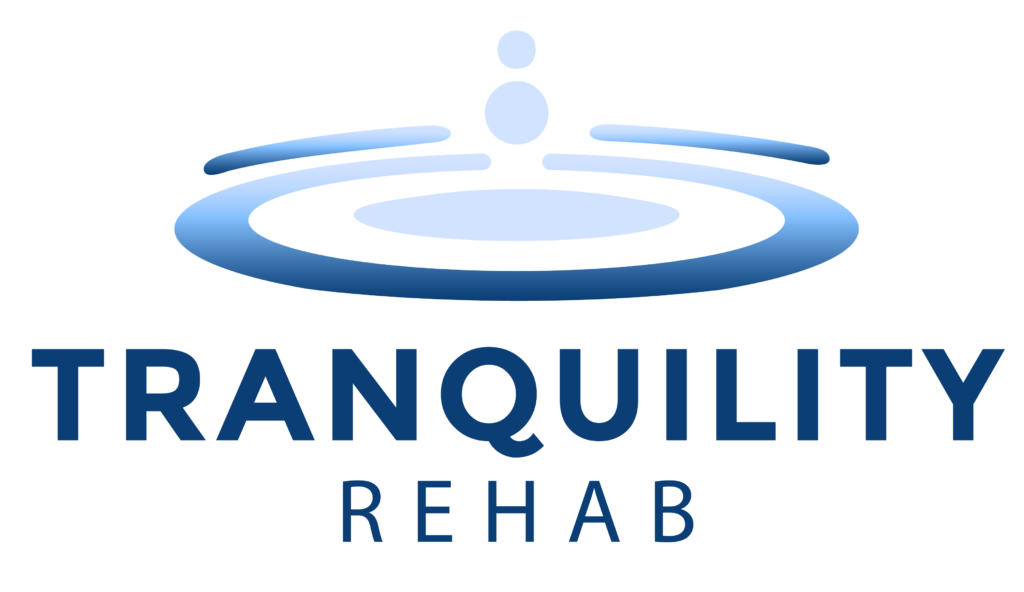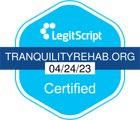If you’re concerned and think your husband is abusing opioids including prescription painkillers, call us at 510.726.4947 for compassionate guidance and direction.
While couples vow to support each other in both sickness and in health, it’s often unimaginable to find yourself asking, “How can I help my husband with opioid addiction?” Opioid abuse can stealthily infiltrate the lives of those who use these substances and the people who care about them. Surprisingly, many individuals initially receive opioid prescriptions on the recommendation of their healthcare providers.
These potent pain-relievers are commonly prescribed for post-surgery pain management, recovery from accidents, dental work after-care, cancer treatments, and various injuries and illnesses. Even as patients recover from their medical conditions, some find themselves dependent on these medications to maintain their sense of well-being and comfort.
Unfortunately, some individuals may begin to take more painkillers than initially prescribed. In the realm of pain medications, particularly those derived from opium, it’s not unusual for people to resort to deceit or theft to obtain additional drugs once their prescriptions have been exhausted. Given the highly addictive nature of prescription opioids, countless individuals have transitioned to illicit or street drugs in pursuit of satisfying their rapidly growing cravings.
Early Stages – Subtle Signs of Opioid Addiction
Recognizing the signs of opioid abuse in your husband is paramount. Opioid addiction at first manifests in subtle yet discernible ways, and moves on to easier to spot physical signs as usage increases. Some key indicators to be aware of in the early stages include:
Increased Tolerance
Over time, individuals may develop a tolerance to opioids, necessitating higher doses to achieve the same pain relief or euphoric effects.
Withdrawal Symptoms
When opioid use is interrupted, withdrawal symptoms can emerge, such as nausea, sweating, agitation, and muscle aches.
Social Withdrawal
Opioid addiction can lead to social isolation, with individuals becoming increasingly withdrawn from friends and family.
Secrecy and Deception
People struggling with opioid addiction often engage in secretive behavior and may lie or steal to obtain more drugs.
Persistent Craving
An insatiable craving for opioids can become a central focus in the lives of those addicted, leading to compulsive drug-seeking behavior.
The Descent into Illicit Drug Use
As opioid dependence intensifies, individuals may transition from prescription medications to illicit or street drugs in pursuit of a more potent high. This dangerous progression can exacerbate the physical, mental, and social consequences of opioid abuse.
The Physical Signs of Opioid Addiction – A Progression
The subtle signs discussed above will always progress to more tangible physical symptoms due to the harsh toll that opioid abuse puts on the body. These substances often leave individuals feeling lethargic, unable to concentrate, inarticulate, and ill-equipped to manage everyday tasks. When opioids are prescribed as pain relief, patients are typically cautioned against activities that demand quick reaction times, critical thinking, or mental clarity, such as driving or operating heavy machinery.
While under the influence of opioids, a person may exhibit:
Constricted Pupils
Opioid use can cause excessively small pupils, a noticeable physiological change
Frequent Nodding Off
Individuals may frequently nod off, even while engaged in conversations or daily activities.
Shallow or Slow Breathing
Opioid intoxication can lead to noticeably shallow or slow breathing patterns.
Sedation and Lack of Energy
A general appearance of sedation and a pronounced lack of energy are common when an individual is under the influence of opioids.
However, as opioid dependence deepens, these symptoms can persist even in the absence of active intoxication. Whether seeking to use opioids or recovering from recent use, individuals struggling with addiction may experience digestive issues such as constipation and nausea.
If you suspect that your husband, who has been prescribed pain medication, is turning to street drugs to supplement their effects, you can also examine his arms or legs for telltale signs like “track marks” or needle scars resulting from intravenous drug use. These physical manifestations can serve as critical indicators of opioid abuse
Getting Help for Your Spouse
Identifying opioid misuse or addiction can be challenging, especially when your spouse initially began taking these medications under a doctor’s recommendation and hasn’t significantly deviated from their usual habits and behaviors. However, early intervention and professional guidance are vital in addressing the issue effectively. Tranquility Rehab is here to provide the specialized support required to navigate the complexities of opioid addiction and embark on a path to recovery.
Opioid Addiction: A Broad Spectrum of Drugs
Opioid addiction doesn’t discriminate; it can affect individuals using a variety of opioid substances that fall into the category. One of the challenges in addiction treatment is that the long-term use of opioids will always lead to physical dependency and addiction. In a lot of men, even short-term misuse of painkillers can lead to dependency. The opioid category includes:
- Fentanyl
- Heroin
- Codeine
- Hydromorphone
- Hydrocodone
Opioid addiction can extend its grasp to those using or misusing methadone, meperidine, oxycodone, and a multitude of other opium-derived or synthetic opioid compounds.
Once your husband has become physiologically dependent upon any of these drugs, stopping them cold turkey or even tapering down usage will result in painful withdrawal symptoms, harsh cravings, and, usually, a failure to stop abusing their opioid of choice. This is why relapse is so common when trying to kick an opioid habit.
If you suspect that your spouse is grappling with opioid addiction, seeking help is paramount. This action not only safeguards their health but also contributes to the emotional well-being of everyone in your household.
Short-Term Opioid Withdrawal – Recognize These Signs
One of the most noticeable indicators of opioid use in your husband may emerge when he is unable to access his opioid of choice in the short-term. Individuals who are physically dependent on opioids and experience withdrawal often exhibit heightened emotions, visible frustration, anxiety, and, at times, outright panic as time passes.
During opioid withdrawal, individuals can become overwhelmingly drowsy and fatigued while grappling with sleeplessness and restlessness. Continuous yawning and stretching may accompany incessant nervous fidgeting. As the withdrawal process unfolds, your husband may contend with:
- Nausea, vomiting, and stomach cramps
- Tremors
- Gooseflesh
- Leg cramps
- Profuse sweating
It’s essential to note that the intensity of withdrawal symptoms is often correlated with the quantity of opioids used and the duration of addiction. The more extensive the history of opioid use, the more pronounced these withdrawal symptoms are likely to be.
Opioid Abuse – Psychological & Behavioral Signs
Just as opioid addiction is brutal on addicts themselves, it can be especially difficult on their spouses and children. As the wife of an addict, you’re probably doing more than your fair share of parenting, financial management, and general household support. In addition to this, your partner is probably becoming increasingly emotionally unreliable as the days wear on.
Opioids can cause intense feelings of elation and euphoria for extended periods of time. With ongoing use, they will start to alter a person’s brain chemistry. As this happens, opioid users have a very hard time feeling any sense of happiness or personal satisfaction without being high. As a result, opioid users often:
- Avoid social situations
- Isolate themselves for extended periods of time
- Experience rapid and dramatic changes in their moods
Opioid addiction can quickly affect a person’s ability to go to work and manage all other personal responsibilities. As the consequences of substance use disorder mount, your husband may become increasingly secretive, start lying to cover drug use, or use manipulation and other unpleasant tactics to justify his actions.
How Opioid Abuse Affects Your Marriage
The profound impact of opioids on brain chemistry makes it exceedingly challenging for individuals grappling with opioid addiction to prioritize their marriages. Their primary allegiance tends to be to their substance of choice, as being without it can lead to both physical and emotional agony.
While opioids can effectively mitigate pain stemming from legitimate illnesses and injuries, the detrimental consequences often far outweigh the benefits when users succumb to the addictive nature of these drugs. Those ensnared by addiction struggle to effectively fulfill their parental responsibilities and cannot reliably contribute to mutually satisfying relationships.
The encouraging news, however, is that there is hope. You can continue to uphold your commitment to love and cherish your partner through sickness and health without sacrificing your future to an enabling and mutually detrimental relationship.
Detox and long-term addiction treatment has proven effective in helping numerous individuals, including men, break free from the formidable bonds of opioid addiction. Call us at 510.726.4947 for compassionate guidance and direction.
Seeking Professional Help
Recognizing the signs of opioid abuse in your husband is a crucial first step. If you suspect that your spouse is grappling with opioid addiction, seeking professional help is imperative. Tranquility Rehab offers specialized treatment programs designed to address opioid addiction comprehensively. Our experienced team can provide the support and guidance needed to navigate the challenging journey to recovery.
At Tranquility Rehab, we specialize in medically assisted treatment for opioid addiction. Our comprehensive services offer access to medications that effectively alleviate withdrawal symptoms and expedite the elimination of drugs and their toxic byproducts from the body. These treatments significantly enhance the journey to sobriety, making it more comfortable and safer. In addition, our patients benefit from a range of mental health support options and group therapy, among other services.
If you recognize the signs of drug use in your husband and are committed to helping him seek recovery, we are here to support you. Call us at 510.726.4947 for compassionate guidance and direction.





